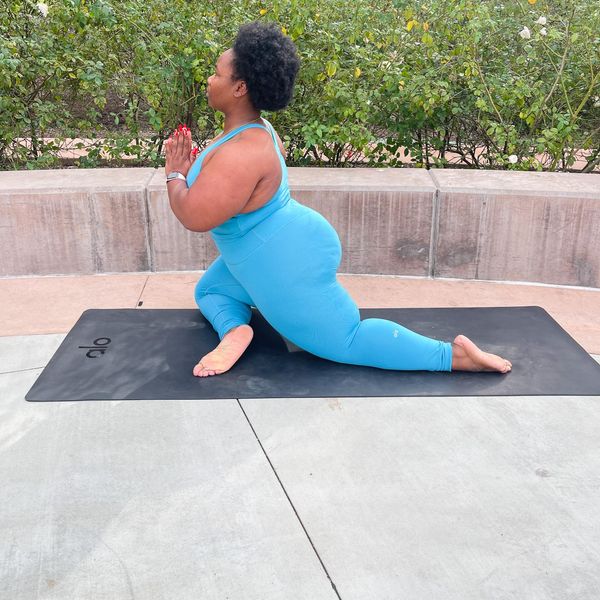
Earlier this spring, I remember reading an article where Oprah said that she had never been to therapy before; that in her mind, her best friend, Gayle King was her "regulator". When you think about all that Oprah has shared regarding childhood trauma, weight battles and pressures with her platform and then you add to that the fact that she gives out so much advice for a living, that seemed rather ironic to me.
It also reminded me of why I oftentimes say to my own clients that there is a difference between something being therapeutic and actually going to therapy. To me, at least once in life, everyone should see a therapist (or counselor or life coach). It's simply a good idea to have a professional help you to look at things from an "outside looking in", totally objective perspective, whether it's for the purpose of healing, revelation, goal-setting — or all of the above.
If you're someone who has either never been to a therapist before yet you've been strongly considering doing so as of late or you've tried it, got burned, and are leery about attempting going again (even though a part of you feels like you should), as a marriage life coach myself, I wanted to share 10 questions that you should personally run through. Ones that can help you feel a lot more confident about sitting on a therapist's couch — for a season.
1. What Specifically Do You Want a Therapist For?
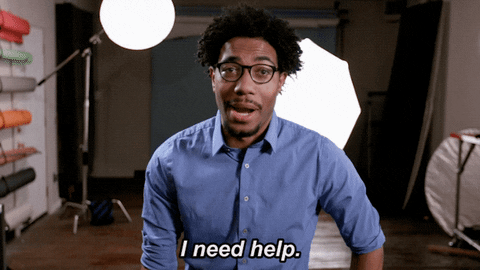
When it comes to this first point, let me say that it would be a bit unfair for anyone who is a therapist to automatically expect you to know what kind of help that you need. After all, getting to the root of that is actually a part of a therapist's job. At the same time, it is a good idea to have some sort of ballpark idea of what you're looking for and the desired outcome you'd like to have. Like me? I work specifically with people who want to keep their marriage together, get it to thrive or those who desire marriage. Sometimes, I'll work with singles who are trying to get some areas of their life together; however, based on how complex and serious those issues are, I'll refer them out.
So, how do you start with your search when it comes to targeting exactly what you want or need? Well, do you want personal or professional assistance? Does it have to do with relationships in any way? Perhaps you've got some patterns/habits that you'd like to break. Are there things about how you live your life that you sense may be rooted in childhood trauma? Maybe you feel stagnant and you need someone to help you to get "unstuck" and set some goals. Ask some questions until you are able to "scratch an itch" so to speak. By the way, if there is something (or one) that is internally nagging you that won't seem to go away, that is a good indication that it should be brought up in therapy.
2. Will a Life Coach Do?
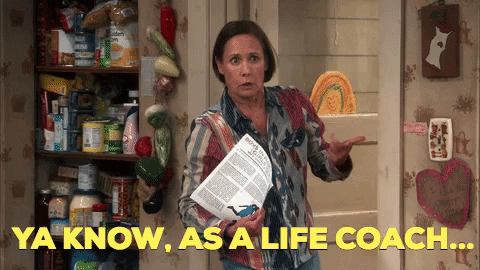
I once heard someone say that the main difference between a therapist and a life coach is a therapist focuses on one's mental health while a life coach is about helping someone reach their goals. I can definitely see there being a lot of truth to that; however, oftentimes a therapist is also considered to be a licensed psychologist, psychiatrist or counselor while a life coach? Some have "letters behind their name" while others do not. It kind of all depends on how much education you'd prefer the person you are working with to have. For instance, a lot of church folks go to see their pastor for counsel yet many of them aren't licensed therapists (or even licensed life coaches); they would be more like a life coach. I've been very open that I am a life coach as well. My work comes from years of experience while a friend of mine, who is also a coach, recently got certified.
Personally, when I'm dealing with a person or couple who I feel have some really deep-rooted issues, oftentimes I will recommend that they go to a therapist in addition to seeing me. However, if you're basically looking for assistance in identifying core issues and mapping out a plan on how to move forward, many times a coach (in an area of expertise that you're looking for because there are many different kinds) will fit the bill.
3. Is Their Ethnicity and Gender Relevant?
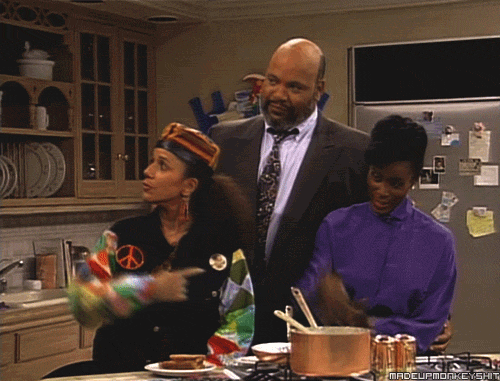
Not too long ago, a friend of mine asked me to refer them to a life coach. When I asked them what area they wanted to focus on, they said that they needed to get professionally organized and also create some long-term goals. Because this individual is pretty "fist in the air" (I'm sure you get what I mean by that — LOL), I assumed that they wanted someone Black. To my surprise, no. "I would actually prefer someone who sees life from a different lens because a lot of my clients aren't Black." Noted.
Some of you who are die-hard Insecure fans can recall the journey that Molly went on to find the right therapist for her. And yes, sometimes, being with someone who shares your ethnicity and/or gender can be a real comfort because you tend to feel like they get exactly where you are coming from. Anyway, whether that is the case for you or not, definitely factor this in while making your selection. It can make finding your right fit so much easier for you.
4. Do They Share or Respect Your Value/Belief System?

As a marriage life coach, I've worked with a few atheist couples in my time (actually, atheists tend to say married a lot longer than many Christians do…that's another article for another time, though). Because I strive to be a Bible follower, I've been asked if that was difficult to do. Eh, a little challenging only because I am someone who believes that marriage is a faith-based union; however, not impossible because I also believe that you can have morals and not be of the same faith system as I am. Still, since I tend to bring up God and Scripture quite a bit, I do make sure that prospective clients know that I think marriage is a covenant relationship and that I use the Bible in a lot of my counsel — at least a lot of the time. At the same time, there is actually a verse in the Word that talks about speaking in parables (applicable stories), so that folks who wouldn't understand Scripture can understand where you are coming from (Matthew 13:13). Taking that in has made it easier to communicate with folks from all walks of life.
Anyway, the bottom line here is you don't want to see someone who could end up doing a lot of debating with you or you're going to feel patronized around because you both have a different set of values or belief systems. If you're Jewish and want a Jewish therapist or agnostic and would prefer someone who won't bring up faith at all in your sessions, that makes total sense; it's pretty wise to look for that. You're already gonna have a lot to unpack. No need to start, right out of the gate, not seeing eye to eye about core foundational issues.
5. Have You Ever Seen a Therapist Before?
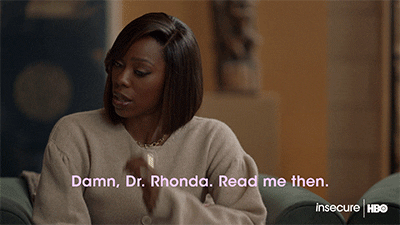
When I say that there is someone in my life who needs to go to therapy, stat — there can't be a bigger understatement when it comes to this topic. While the core of him is good, he makes some of the most redundantly toxic choices that I have ever seen in my entire life. The real catcher is he's so cryptic when it comes to how he moves that a lot of people come to him for insight. It's a mess. The few times when he has at least allowed me to broach the topic of counseling, he once shared that when he took a chance and tried, the therapist actually did something that was extremely unethical; they started developing feelings for him. And so, as of now, that has caused him to stay as far away from therapy as possible.
If you're hesitant about going to a therapist because you've never been before and you're not sure what to expect, that is totally understandable. Just try and keep an open mind. No one can make you do anything you want to do — including staying with someone you don't like or continuing in something that doesn't seem like a wise fit. On the other hand, if you're damning therapy because of a bad past experience, what I will say is, just like there are some good and bad people in general, there are also some good and not-so-good therapists. To swear off all of them because of one unfortunate situation would be a shame. Besides, how can one meeting — possibly a couple of times — with someone new hurt? You're still in control. No matter what. Always remember that.
6. How Do They Act in the First Meeting?
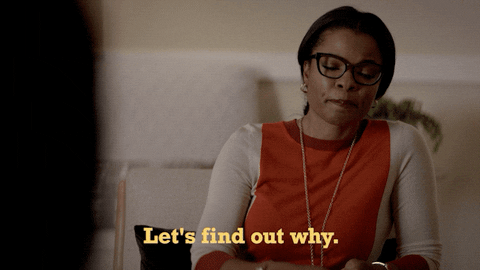
I'm gonna be straight up with you. Seeing a prospective therapist/counselor/life coach for the first time is a lot like a first date. And just like first dates, there are several red flags that you should look out for. Ready? Here are 10 of 'em.
- If they're late. It means they don't respect your time.
- If you feel like they are over-talking you. They aren't good listeners.
- If they come off condescending or patronizing. You need to feel comfortable.
- If they are distracted. That's just plain rude.
- If you feel like they're giving more of a monologue than dialoguing with you. You aren't to be their audience member.
- If you feel a hell of a lot worse rather than better. No one should feel like shame imposed by the therapist. Do keep in mind that therapy may bring about really uncomfortable moments so that you can get to the root of matters.
- If you sense gaslighting or manipulation. A therapist shouldn't be emotionally controlling or violating you.
- If it seems like a religion session. A faith-based therapist is one thing. Trying to recruit you is something else.
- If you feel no sense of peace. A good fit will bring about some clarity or "ah ha" moments, even from the first meeting.
- If you just don't "click". No explanation needed.
7. How Does Payment Go?
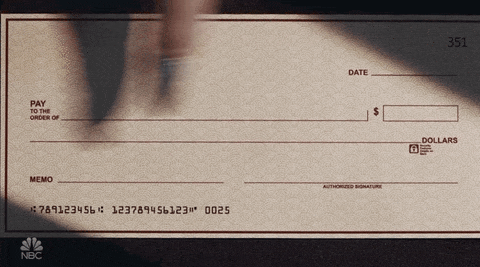
This is huge. Some therapists only take insurance (and well, you already know how that goes). Some will change insurance companies and just drop you (even if you've worked with them for years). Some are willing to work out some sort of out-of-pocket payment plan. The bottom line with this point is assume nothing. I know some people who were really hurt when, after several years of seeing (and becoming really comfortable with) their therapist, they had to part ways because their therapist left their insurance network and so they couldn't afford to keep seeing them. Let me tell it, before even going to the first session, this should be addressed. It would be a shame to find someone you really like, even upon the initial meeting, only to realize that you can't afford them.
8. How Committed Do You Plan on Being to the Process?
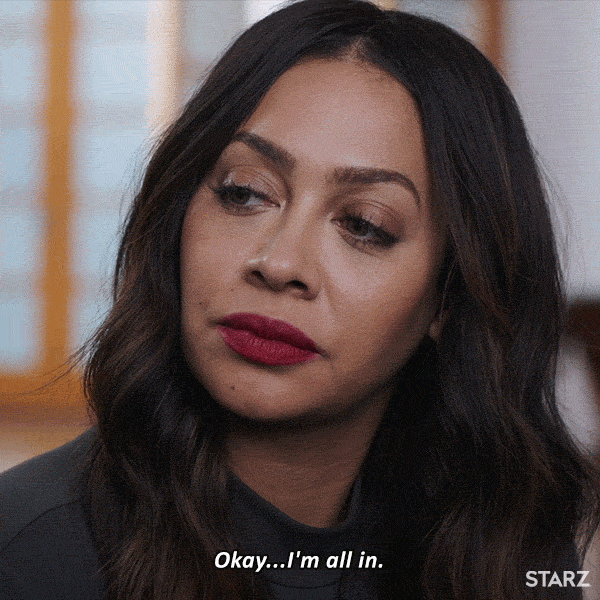
I believe I can speak for all people in the counseling field when I say that nothing is more taxing than working with clients where we seem far more invested in their betterment/healing than they do. I can't tell you how many couples I've worked with who don't do the assignments and/or will show up late and/or will cancel/reschedule at the last minute — over and over again. Or, they want to meet far and few between, when their problems clearly indicate that they need to be seeing someone, at least a couple of times a month. Matter of fact, I know a couple who's basically been in some sort of therapy, ever since they said, "I do". However, they are infrequent as all get out and are constantly in a pattern of expecting the therapist to save them from divorce whenever they allow things to go too far. Saving you at the last minute? Yeah, that is not our job. And it's not even fair.
Anyway, once you've met with a therapist for a few times, they should be able to give somewhat of an assessment of how often you should see them and how long it will be necessary (at that level of intensity, whatever that may be). If you know that you are not going to commit to that, you might want to wait until you can. The reality is that some people have a bad experience in therapy, not because of the therapist or the therapy itself; it's because they are mentally and emotionally all over the place and refuse to do the work that is required. And as best-seller author Iyanla Vanzant often says, "We're not gonna fight you for your healing." We shouldn't have to.
9. Has the Therapist Ever Been to Therapy?
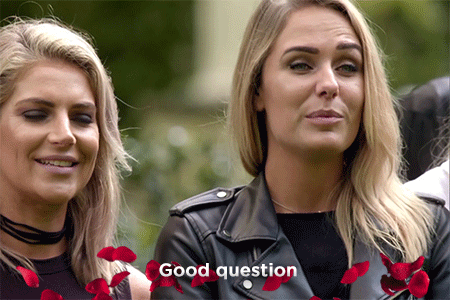
This. One. Right. Here. If you're someone who's always been hesitant about going to therapy because you've heard that some of the craziest people are therapists — I'm not gonna lie and act like there's not some truth to that. There are many narcissists who are therapists. There are a lot of arrogant people who are therapists. Some folks use being a therapist as a way of escapism from their own demons and drama because it makes them feel good to fix other people's stuff rather than dig deep and tackle their own. And then there are some therapists who are so delusional that they think everyone needs their insight while they can't humble themselves to hear what they need to do with their own lives.
This is why I think it is totally NOT out of bounds to ask a prospective therapist if they've ever been to therapy before. While the reasons why are not really any of your business, you can learn a lot about someone who is willing to admit that either they've had past issues that they've needed to tackle or, like Meryl Streep's character did in one of my favorite movies (Prime), they go because they hear so much of other people's stuff that they need a professional to help them to process it all and set good emotional boundaries.
One of my favorite licensed counselors, I saw in high school, college and many years into my 20s. Now I have a therapist friend that I run things by when I need them. They are an absolutely godsend. So yeah, a therapist who has a therapist isn't something to side-eye. It's actually something to smile about.
10. What’s the “Proof of Purchase”?
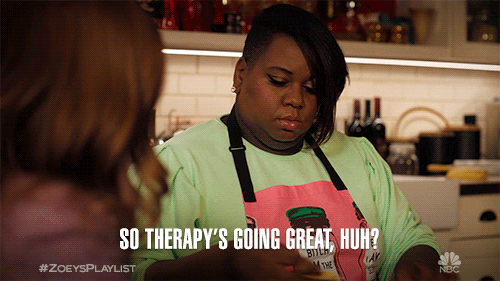
Something that I apply to churches and therapists is, if after about a year, you see no signs of personal growth and progress, that's probably not the place for you. Best believe that, also like a lot of churches, unfortunately, there are some therapists out here who are perfectly fine running your credit/debit card, listening to you and not really tracking for your growth. A thorough therapist will actually talk about where things stand and how you're doing, periodically. And you should expect that because a therapist is supposed to provide you with tips and tools to be better as the result of interacting with them. You definitely shouldn't be stagnant or worse — worse.
I am passionate about people getting the health that they need, so of course, I could go on. I'm hoping that this will help to at least provide you with some peace of mind. Therapy is a blessing. Asking the right questions can lead you to the best therapist. It really can.
Join our xoTribe, an exclusive community dedicated to YOU and your stories and all things xoNecole. Be a part of a growing community of women from all over the world who come together to uplift, inspire, and inform each other on all things related to the glow up.
Featured image by Getty Images
- Why Janelle Monae Advocates For Therapy As A Form Of Self-Care ... ›
- Therapy For Black Girls: Beginner's Guide To Therapy - xoNecole ... ›
- Childhood-Related Questions To Ask Your Partner - xoNecole: Women's Interest, Love, Wellness, Beauty ›
- What To Know About Hiring A Life Coach - xoNecole: Lifestyle, Culture, Love, & Wellness ›
- Key Questions to Ask When Choosing a Therapist ›
- 6 Questions Everyone Should Ask Their Therapist | Everyday Health ›
- 20 Questions to Ask Your New Therapist | Advocating for Better ... ›
- A Beginners Guide to Therapy. Part 2: What to ask in the consult ... ›
- The 14 Questions You Should Ask a Therapist Before Your First ... ›
Your December 2025 Monthly Horoscopes Are All About Surrender & Alignment
December is about letting go. We end the year with the need for more peace, reflection, and rejuvenation, and that is exactly what December is providing for us. The Sun is in Sagittarius, and anything is possible. This is the month to believe in that and to know that the universe is supporting you. With a Supermoon in Gemini as we begin the month as well, we have an opportunity to gain the closure we have been looking for this year and to wrap up old projects, ideas, and communication breakthroughs.
This is the month to make your peace the priority and let go of trying to control the way the tides are turning. Trust in your new beginning, and give yourself time to prepare for it this month.
A big part of the clarity that is coming through this month is due to Neptune going direct in Pisces on December 10, after being retrograde here since July. With Neptune now direct, we are able to see our inspiration and creativity a little more clearly, providing the perfect energy for dreams and manifestation to be built upon. The smoke is clearing, and it’s up to you to decide what you want to do with this newfound clarity that this transit is bringing. Mercury also moves back into Sagittarius on December 11, which is great for communication and clarity, and the adventures you were trying to see through at the beginning of November come around for you again with greater purpose and support.
On December 15, Mars enters Capricorn until the end of January 2026, and this is the extra push we need to make important changes and to be on the path towards greater abundance, stability, and prosperity. Mars in Capricorn takes care of business, and we have extra energy at our disposal during this time to do so. This transit is an ideal time to focus on your career or financial goals for next year and to start putting some of these plans into motion now. A few days later, we have the New Moon of the month, which will be in Sagittarius on December 19, and this is the perfect New Moon to manifest.
The energy is high, magic is in the air, and it’s all about moving forward with the new beginnings that are inspiring you and bringing you joy to think about right now.
Capricorn Season officially begins on December 21, and this earth sign energy is how we heal, gain closure, and build new foundations in our world. With Venus also moving into a Capricorn a few days later, there is something about peace, prosperity, and security that we are gaining in life and in love as we close out the year, and this is what we need right now. This month is about reflecting on what was, letting go of old hurt, and renewing. December is an ending and a new beginning in one, and there is magic in this space to be created.
Read for your sun and rising sign below to see what December 2025 has in store for you.
 AriesKyra Jay for xoNecole
AriesKyra Jay for xoNecoleARIES
December is a full-circle moment for you, Aries. You are seeing the gifts in your world and have a lot of gratitude for the way things have come about for you as of late. There are culminations in your world that are providing you with more abundance, stability, and community, and you are exactly where you are meant to be this month. With the Sun in a fellow fire sign and in your 9th house of travel for most of the month, December is a good time to get out of your comfort zone, explore the world around you, and get your body moving.
Mars, your ruling planet, also makes a change and moves into Capricorn on December 15, which will fuel your inspiration and power in your career space. You are making a lot of professional progress as we close out the year; however, make sure to be more mindful of your competitive drive right now. The New Moon on December 19 is the perfect opportunity for you to create some new plans and goals when it comes to traveling, education, and where you want to gain some new inspiration in your world. Overall, this is a month of things coming together for you serendipitously.
 TaurusKyra Jay for xoNecole
TaurusKyra Jay for xoNecoleTAURUS
December is about trusting your intuition, Taurus. You have a lot on your mind this month, and it’s best to delegate, communicate, and allow yourself some relief by opening up to someone and not feeling like you have to hold everything in. As we begin the month, we have a Supermoon in Gemini happening in your house of income, and the plans and projects you have been building here come to fruition for you now. This is the time to gain clarity on your financial world and to take a look at what spending habits you want to let go of here as well.
With Venus in your 8th house of shared resources for most of the month, you are doing a cleanse on your commitments, partnerships, and business ventures. You are taking a look at what you want to dedicate yourself to in the future, and what commitments you may need to let go of now in order to be in the space you truly want to be, both financially and within some of your relationship dynamics. Before we end the month, we have a New Moon in this same area of your chart, and it’s time to look at the opportunities that are presenting themselves and to trust your internal guidance system to lead you forward.
 GeminiKyra Jay for xoNecole
GeminiKyra Jay for xoNecoleGEMINI
You are moving forward fearlessly this month, Gemini. December is your month of love, passion, and dignity, and you are owning the light that you shine. We begin the month with the last Supermoon of the year, happening in your sign, and you are stepping up to the plate. You are showing up, owning how much you have grown this year, and allowing yourself to heal while also acknowledging that you have done your best and you deserve to have fun in the midst of the changes you are creating.
Mercury, your ruling planet, is officially out of retrograde, and you can use this energy to the fullest potential now. With Mercury in your 7th house of love, it’s time to speak from the heart and to talk about the things that matter and that are inspiring you right now to your loved ones. You never know what kind of epiphanies you may have when you open up the conversation to others. Before the month ends, you have a New Moon in this same love area of your chart, and this New Moon is all about manifesting romance, commitment, and abundance in your world.
 CancerKyra Jay for xoNecole
CancerKyra Jay for xoNecoleCANCER
December is an opening for more love, more joy, and more freedom in your life, Cancer. You have come to a place where you hold so much gratitude in your heart for where you are today and where your heart is shining, and things come together for you with more ease right now. With the Sun in your 6th house of health, work, and daily routines for most of the month, you are getting your ducks in a row while also putting more energy and effort into taking care of yourself, your priorities, and your well-being. This month surprises you in many ways, and it’s because you are showing up.
Mars and Venus both move into your house of love, relationships, marriage, and abundance this month, and you are making strides in your love life. You have both of these opposing forces on your side and are being recognized for the love you are while also receiving the love you want. This month, overall, is about focusing more on the positives in your world and letting your heart have its joy. Before December comes to an end, there is a New Moon in Sagittarius, and this is the perfect opportunity to create the plans you want to see through next year, especially when it comes to your work life, colleagues, business ventures, and health.
 LeoKyra Jay for xoNecole
LeoKyra Jay for xoNecoleLEO
The scales of karma are balancing, and they are balancing in your favor this month, Leo. December is your month of truth, and of seeing it clearly in your world. The Sun is in your house of romance, pleasure, and happiness for most of the month, and it’s time to relax, be in the present moment, and allow what is meant to be, to be. With a Supermoon in your 11th house of manifestation as December begins, this is a powerful month for seeing your dreams come to fruition, and for feeling like the intentions you have set this year are finally here for you now.
Mars also moves into your 6th house mid-month, and this is the perfect energy to have to move into the new year. You have extra energy at your disposal right now and are feeling fearless with what is possible for you and your daily routine. Before the month ends, we also have a New Moon in a fellow fire sign, Sagittarius, and this is a breakthrough moment for you and your heart. December, overall, wants to show you how loved and supported you are and will be doing so in magical, unexpected, and concrete ways.
 VirgoKyra Jay for xoNecole
VirgoKyra Jay for xoNecoleVIRGO
December is a month of victory, Virgo. You are showing up and experiencing some new successes in your world that move you forward on your path in life. With a Supermoon in your 10th house of career as we begin the month, the effort and intentions you have made this year come into full bloom, and you are being recognized for who you are and the good work you have done. This month is all about showing up and allowing yourself to be seen and loved, knowing that you deserve the support and opportunities you are receiving.
Mars moves into Capricorn on December 15, which brings the passion and excitement into your love life, hobbies, and little pleasures in life that light you up. You want to have fun this month and are going to be walking into the new year with this fearless, happy, and spontaneous energy within you. Before the month ends, Venus also enters Capricorn, and in this same area of your chart, you have a lot to look forward to and believe in right now. Overall, December wants you to be happy and will be doing everything possible to make that happen for you. This is your month to shine, Virgo.
 LibraKyra Jay for xoNecole
LibraKyra Jay for xoNecoleLIBRA
December is a month of opportunity for you, Libra. New doors open, and you are financially making breakthroughs this month because of it. December begins with a Supermoon in your 9th house, and you are getting a clearer view of where you have been making strides in your life and how it has all brought you here to this present moment of freedom. This month is showing you what happens when you are fearless with your purpose and when you believe in yourself and what you are worthy of.
Moving further into December, Mars moves into your 4th house of home and family mid-month, and you are closing out the year in your safe spaces. You are spending more time with your loved ones and taking the time to quiet your mind and listen to what your heart has been telling you. Before the month ends, we have a New Moon in Sagittarius, happening in an area of your life that deals with communication. This is a great time for getting the answers you have been looking for and for feeling more clear-headed and confident about the decisions you are making as you move into the new year.
 ScorpioKyra Jay for xoNecole
ScorpioKyra Jay for xoNecoleSCORPIO
Patience is a virtue this month, Scorpio. December is all about remaining patient and vigilant with what you are creating in your world, and knowing that the universe has your back. It’s time to be reminded of the power of hope, and this month is an opening to greater clarity in your life. There is a lot of energy in your financial zones right now, and this is providing you with new opportunities and new insight; however, the speed at which things come about for you may feel daunting. Keep your head up and eyes focused on what you want and know that you are more than worthy of receiving it.
With Mercury in your 2nd house of income this month, December is a good time to plant new seeds and to think about where you want to be financially a month from now or even a year. This month is asking you to think bigger and to think more long-term so that you can set the appropriate plans into motion now. We also have a New Moon in your house of income before the month ends, and this is when you will see more of your dreams come to fruition in this area of your life, and have more opportunities to build. Overall, December will be teaching you a lot, Scorpio.
 SagittariusKyra Jay for xoNecole
SagittariusKyra Jay for xoNecoleSAGITTARIUS
Sagittarius Season is here, and there is a lot in store for you this month, Sag. December is all about what you are dedicating yourself to. It’s about setting your intentions and putting the work in to back up your dreams, and about getting things in order so that when the new beginnings come, you are ready for them. The Sun and Venus are in your sign for most of this month, and there are a lot of eyes on you right now. You have the potential to create a new beginning for yourself, and it’s time to invest in yourself, your love life, and your dreams.
Mercury moves into Sagittarius on December 11, and this is giving you another opportunity to see through some of the plans that you had initiated in November. Mercury was retrograde in your sign last month, and there may have been some disruptions to your vision and plans for the future, and now this energy is turning around for you. Before the month ends, we also have a New Moon in Sagittarius, and you are walking through new doors fearlessly. You are catching others by surprise by your growth this month, and you are thinking a lot about your purpose, future, and plans for the new year.
 CapricornKyra Jay for xoNecole
CapricornKyra Jay for xoNecoleCAPRICORN
December is all about the vision, Capricorn. You are moving through a lot of changes and transformations this month, yet they are giving you a chance at a new beginning in the process. You are focused more on the future and what goals you want to manifest for yourself right now, and are ready to let go of what hasn’t been working for you. With the Sun in your 12th house of closure for most of December, this is your time for healing, but remember, healing doesn’t have to be isolating or boring; you can thrive while you renew, and you are this month.
Mid-month, the excitement picks up for you, and you are feeling more energized than you have in a while. Mars moves into Capricorn until the end of January 2026, and you are being proactive with your goals, intentions, and passions. You are a force to be reckoned with this month, and you are making things happen for yourself with confidence. Capricorn Season officially begins on December 21 this year, and this is definitely speeding up your healing process. You are breaking free from what was, and with Venus also moving into Capricorn before the month ends, you are leaving this year in high spirits and with love opening a new door for you.
 AquariusKyra Jay for xoNecole
AquariusKyra Jay for xoNecoleAQUARIUS
December is all about community, creativity, and manifestation, Aquarius. This is the month to work together with others to help bring your dreams to life. You are in a space of inspiration, empowerment, and beauty, and are creating more of this energy around you and in your world. Look out for what support comes your way this month and know that you don’t have to do everything alone to succeed. With the Sun in your 11th house of manifestation and friendship, your intentions are coming to fruition, and it’s time to celebrate with the people you love and to own how far you have come this year.
On December 19, we have a New Moon in Sagittarius, lighting up your life in all of the best ways possible. This is your New Moon of freedom, victory, and magic, and you are seeing new beginnings appear that you were once just hoping for. Before the month comes to an end, Venus moves into your 12th house of closure, and after an active and successful month, you are ready to relax, heal, and give your heart some of the attention it has been asking for. You are moving into the new year with the need to release and renew what hasn’t been working in your relationships, and you are finally ready to.
 PiscesKyra Jay for xoNecole
PiscesKyra Jay for xoNecolePISCES
December is a big month for you, Pisces. You are making some huge accomplishments this month, and are feeling like everything you have been through this year has been worth it for these moments that are coming to fruition for you now. The Sun is in your 10th house of career and reputation for most of the month, and this is where a lot of your focus is right now. You are claiming your successes and putting yourself out there in ways that not only serve you, but that inspire others as well.
Neptune officially goes direct on December 10, after being retrograde in your sign since July, and you are finally seeing things a little more clearly. You are feeling renewed inspiration and passion in your life, and your intuition is your strongest asset right now. Before December comes to an end, we also have a New Moon in your 10th house of career, and what happens now not only changes things for you in the present, but it also opens new doors and what is possible for you in the new year as well. Overall, you are on top of your game this month and are owning the joy and empowerment you feel.
Featured image by Kyra Jay for xoNecole
You're Over Him. Should You Wait Until After The Holidays To Say It?
When a client told me that she was seriously considering ending her relationship of 10 months before Christmas, I wasn’t surprised. That’s not a sneak diss on what she has going on with her man or anything; it’s just that I know that the holiday season (the month of December, more specifically) is a very popular time for folks to call things off. Between the pressure of bringing people around family and the urge to start off the new year with a clean slate — yeah, it makes sense.
At the same time, though, I do think that there is something to be said for ending things well — and when it comes to a break-up? During this time of the year? Before you make that official move, I just want to make sure that you’ve thought a few things through.
Things like what exactly? So glad that you asked.
How Serious Is the Relationship?
 Giphy
GiphyOkay, so if you’ve never heard of the “10-date rule” before, it’s basically the belief that after 10 consecutive dates with someone, it’s time to come to the conclusion that you are officially in a relationship with them. Personally, I have lived, observed and counseled enough people to say that when it comes to knowing where you stand with another person, you shouldn’t assume one damn thing — you should 1000 percent communicate your thoughts and listen to theirs in return.
That said, it is a bit different (wouldn’t you say?) if you’ve been out on a couple of dates with someone vs. if you’ve been with them for almost a year. So yeah, the first thing to ponder is how serious the dynamic is. Because honestly, if things are new and fairly casual, I don’t see how ending things, whether it’s the holiday season or not, is going to matter much — one way or another.
Remember, the holidays tend to be a very emotional time; however, if there isn’t a huge emotional investment going on, I don’t think anyone in a casual situation is going to look back and think that you are a villain (or Grinch), just because you’d prefer not to go on a third date with them. Good lord.
Next point.
Do You Want to Slow Down or End Things Entirely?
 Giphy
GiphyAre you totally over him or is it more like there are some things about the situation that you want to step back and ponder before making any major decisions about the future? If the answer is “B,” I recommend talking it over ASAP; especially if the two of you have been seeing each other for a while at this point. I say this because, whether you all are at the “meet the family” (or have already met the family) stage or not, when people are in a relationship, they tend to factor one another into their holiday plans — and it’s hella inconsiderate to not take this into account when it comes to the guy who you are seeing.
That said, I will say this: It’s mighty interesting that you are choosing this time of the year for this type of relational self-reflection — so, while you’re on this break, think about what it symbolizes.
For instance, are you slowing things down right now because you’re not sure if you want to go into a new year with him or are you doing it because spending the holidays together tends to represent that a relationship is far deeper than you want yours to be right now? Because really, you could’ve gone with the summertime (for example) not the holiday season to make this type of move…so, if your “pump the brakes” time is now, chances are, there is some subconscious subtext going on that you really should get to the root of.
Actual Holidays Are a DEFINITE No-No
 Giphy
GiphyYou would think that this wouldn’t need to be said yet since I once experienced a guy who decided to be a complete a*shole on my birthday some years back — yeah, let’s address it. Isn’t it interesting that one study revealed that during the first week of December, searches for how to break-up with someone go up by a whopping 60 percent? Then, if you add to that the fact that the holidays can sometimes be pretty stressful — well, while most folks with a heart and a conscience wouldn’t dream of breaking up with someone on an actual holiday, sometimes the pressure of everything can create the perfect storm for it to happen anyway.
That said, a super-duper throwback song by Neil Sedaka entitled, “Breaking Up Is Hard to Do” — and it absolutely is. Know what makes it worse: It happening on a holiday, so that every time the day rolls around, it’s bittersweet because you remember that someone broke up with you then.
Listen, just because you may not love or even like someone (in that way) anymore, that doesn’t mean that you shouldn’t treat them with some common decency and respect. Besides, don’t you also want your own Thanksgiving, Christmas Eve, Christmas Day, New Year’s Eve and New Year’s Day to be as unscathed and drama-less as possible?
Whatever you’re gonna do, you’re grown, chile. If you want my advice, though — put good energy into your future holiday seasons and avoid breaking up (or even having deep decisions) on actual holidays.
Definitely Keep the Golden Rule in Mind
 Giphy
GiphyProbably, until the end of time, there are going to be debates about whether karma is real (in the sense of it being scientifically proven). While quite a bit of data says that it isn’t and that it tends to be adapted and promoted by certain faiths more than anything — if you do believe that you reap what you sow (Galatians 6:7-8), at the end of the day, that is pretty much what karma is all about and, as I oftentimes say, karma (or sowing and reaping) don’t have expiration dates. In other words, what you have said and done can manifest in ways and at times that you never saw coming. A cautionary tale, indeed.
So yeah — even if you’ve been with ole’ boy for a while now, you’ve tried to make it work and you just don’t see a future for the two of you anymore, however you decide to end it, definitely keep the golden rule of doing unto others as you would want them to do unto you in mind.
Be as kind as you are honest. Be as empathetic (putting yourself in his shoes) as much as you possibly can. Avoid gaslighting him about how he feels about your decision. Be clear about how you’d like things to be moving forward (for instance, if you actually DON’T want to be friends afterwards, there’s no need to say it). And try not to do anything that will make him feel used — like waiting until after receiving a Christmas gift to end it (you’d be amazed by how many people do exactly that. SMDH).
The thing about break-ups is, live long enough, and you’re probably going to be on the giving and receiving end of one. So, even if you’re not really emotionally invested in your relationship anymore, be kind to your future self and be as respectful as possible throughout your…relational transition. Because even if you don’t feel like he deserves it, your feelings up the road, with someone else who may do the same thing to you…absolutely do.
Timing Is Everything
 Giphy
GiphyA bishop by the name of Fulton J. Sheen once said, “Patience is power. Patience is not an absence of action; rather it is ‘timing’ it waits on the right time to act, for the right principles and in the right way.” And while it might seem really challenging to figure out when the RIGHT time to break up with someone is — “right” is about using good judgment, right is about conforming to certain principles (like integrity and fairness), right is about doing things in order. Now with that in mind, is the RIGHT TIMING now or should it be later?
Only you can really answer that yet what I will say is if your mind, body and spirit aren’t on the same page — figure out why before making any moves. Oh, and if it’s simply about fear — girl, whether it’s November 30, December 9 or January 14…break-ups are always going to be uncomfortable. It’s about knowing what’s best for you and then ending things in a way that is as respectful, timing-wise, as possible (again, due to the whole karma thing).
____
‘Tis the season and sometimes “out with the old” means leaving a relationship behind. Just make sure that you move with wisdom and discernment and not hypersensitivity and knee-jerking.
That way, you can look back on every holiday season with as little regret as possible.
Due to how you handled things. Including a (potential) break-up.
Let’s make things inbox official! Sign up for the xoNecole newsletter for love, wellness, career, and exclusive content delivered straight to your inbox.
Featured image by Shutterstock






